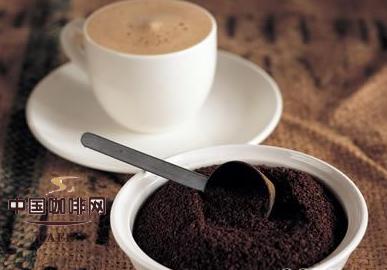What are the ingredients of caffeinated coffee?

Google for caffeine and you'll get more than 20 million results about caffeine in 0.11 seconds, and most descriptions of caffeine are negative: caffeine is bad, caffeine is addictive, it can cause headaches, exacerbate high blood pressure, and so on, and so on, most of the result is that caffeine is the enemy of our health, and drinking coffee is equivalent to drinking caffeine.
As a result, we always love or hate coffee in our lives, just like me and a friend of mine, she is a loyal lover of coffee, and I am hostile to coffee, she loves coffee so much that whenever I am present, she will pour a cup for me enthusiastically regardless of my opposition, and I always pretend to drink it, leaving most of it for a variety of reasons. I don't hate the aroma of coffee, just afraid of caffeine.
At present, the book "101 reasons for Coffee innocence" seems to fully support the fanaticism of coffee loyalists and allay the concerns of people like me who like the taste of coffee but worry about the negative effects of caffeine.
This pamphlet, jointly written by health experts from China, the United States and Brazil, has made a big turnaround for coffee: in fact, caffeine is not the most important substance in coffee. The highest and most important bioactive chemical in coffee is the antioxidant chlorogenic acid, which exceeds the content of caffeine. In addition, coffee contains more nutrients than many foods. Containing proteins and amino acids, lipids such as triglycerides and free fatty acids, and large amounts of minerals such as potassium, iron and zinc, experts believe that coffee is a healthier natural drink than soda, beer, spirits, champagne and energy drinks.
For example, coffee, a natural food, is considered to be the best energy drink compared to artificial energy drinks that we have always thought can replenish energy. A study of 28 energy drinks found that some energy drinks contain 14 times as much caffeine as a can of cola, equivalent to seven cups of espresso. Drinking too much caffeine can lead to high blood pressure, increased heart rate and anxiety. This means that if people replace artificial drinks such as soda and cola with a cup of coffee, it will not only reduce our calorie intake, but also improve our memory to some extent.
It also involves the question of how to drink coffee in moderation. According to the book's experts, a small or moderate amount of caffeine (200-300 mg per day), equivalent to 3-4 cups of coffee, can improve agility, attention and memory, and help maintain a good mood.
When it comes to drinking coffee, if you're a novice, make sure you start with a large cup (150ml) in the morning, and after 4-7 days, you can increase to 3-4 cups a day, 1: 00 a. M., 10: 00 a. M., 1: 00 after lunch, and the last one at 3: 00 p. M. In this way, you can wake up with coffee at the time when your brain is most sleepy.
Be sure not to drink it in the evening or after 5pm, which may cause insomnia.
Health tips: what are the ingredients of coffee?
Caffeine: caffeine is the most eye-catching of all the ingredients in coffee. It belongs to a kind of phytoxanthine (animal muscle component). It has the same properties as theophylline contained in cocoa, green tea contains the same theophylline, and the percentage of reduction after baking is very small. Caffeine has a very extensive effect. It will affect various parts of the human brain, heart, blood vessels, gastrointestinal tract, muscles and kidneys. The right amount of caffeine will stimulate the cerebral cortex, promote sensory judgment, memory and emotional activity, and make the myocardial machinery more active. Vasodilation enhances blood circulation and improves metabolic function. Caffeine can also reduce muscle fatigue and promote digestive juice secretion. In addition to this, because it also promotes the kidney function to help the body expel excess sodium ions (chemicals that hinder the metabolism of water molecules), caffeine will not accumulate in the body like other narcotic and excitant substances (narcotic drugs, paint solvents, stimulants, etc.) and will be excreted in about two hours. The biggest bitterness of ─ in coffee flavor is caused by caffeine.
Tannin: after extraction, tannin will turn into a yellowish powder, which can easily blend into water. After boiling, it will decompose and produce pyrosylic acid, which will make the coffee taste worse. If the coffee is soaked and left for several hours, the color of the coffee will become stronger than when it was just soaked. And it is also less tasty, so there is the saying that "it is best to drink it as soon as possible."
Fat: the fat contained in coffee plays a very important role in flavor. It is found that there are many kinds of fat in coffee, the most important of which are acidic fat and volatile fat. Acidic fat means that there is acid in fat, and its strength varies with different types of coffee, and volatile fat is the main source of coffee aroma. Once the fat contained in roasted coffee beans comes into contact with the air, chemical changes may occur and the taste and flavor will become worse.
Protein: the main source of calorie is protein, and like dripping coffee, most of the protein will not dissolve out, so no matter how much coffee you drink, the nutrition you get is limited, which is why coffee will become a sacred food for dieters.
Sugar: without sugar, you will not only feel the bitterness of caffeine and the sour taste of tannin, but also feel sweet, which is caused by the sugar contained in the coffee itself. After baking, most of the sugar will be converted to caramel, bringing a unique brown to the coffee.
Minerals: there are lime, iron, sulfur, sodium carbonate, phosphorus, chlorine, silicon and so on, because the proportion of very little affect the flavor of coffee is not big, combined to bring only a little astringent taste.
Crude fiber: raw bean fiber will be carbonized after baking, this carbon and sugar caramelization combine with each other to form the tone of coffee, but the fiber turned into powder will have a considerable impact on the flavor of coffee. Therefore, we do not encourage the purchase of powdered coffee beans, because we are unable to taste the flavor of the coffee.
The bitterness of coffee: the color, aroma, and taste of coffee are caused by complex chemical changes that take place during roasting. Therefore, raw beans must go through appropriate chemical procedures to achieve the most balanced state of its essential ingredients in order to be regarded as the best baked beans. The aroma of coffee changes with the heat, so the baking time should be shortened as much as possible, and the heat should be controlled at the lowest temperature that can produce effective chemical composition of coffee beans, that is, the time and heat of the shortest process, so that coffee beans can produce the most suitable composition ratio.
Aroma: aroma is the life of coffee quality, and it can best represent the coffee production process and baking technology, as well as the climate, elevation, variety, refined treatment, harvest, storage, roasting technology of the consuming country, etc. are the conditions that determine the aroma of coffee beans. The results of gas chromatographic analysis showed that the aroma of coffee was composed of acid, alcohol, acetaldehyde, ketone, ester, sulfur compound, phenol, nitrogen compound and nearly hundreds of volatile components. Generally speaking, fat, albumen and sugars are important sources of aroma, while lipids blend with the sour and bitter of coffee to form a smooth flavor. Therefore, the disappearance of fragrance means that the quality is getting worse, and the relationship between aroma and quality is very close.
Important Notice :
前街咖啡 FrontStreet Coffee has moved to new addredd:
FrontStreet Coffee Address: 315,Donghua East Road,GuangZhou
Tel:020 38364473
- Prev

There is also knowledge in drinking coffee. You must read the rules for choosing coffee.
Coffee is an expensive agricultural product, like wine, coffee is an agricultural product, and like wine, it changes every year under the influence of climate, light, and so on, and it will show different tastes due to different places of origin. The above-average coffee beans are basically Arabica coffee beans, which grow only at an altitude of 900m to 2000 m. Coffee is abundant in the world.
- Next

Tea is a rational man, coffee is an emotional woman.
Maybe we should look at tea and coffee from an interesting perspective. Tea is a man, coffee is a woman. So they fell in love quickly. Women fall in love with the introversion of tea, while men fall in love with the richness of coffee. As a result, Anji white tea world outside the source of tea quietly, bringing white tea to marry a princess and other romantic and hot discussion. Tea is a very good man, just like a good cup.
Related
- Detailed explanation of Jadeite planting Land in Panamanian Jadeite Manor introduction to the grading system of Jadeite competitive bidding, Red bid, Green bid and Rose Summer
- Story of Coffee planting in Brenka region of Costa Rica Stonehenge Manor anaerobic heavy honey treatment of flavor mouth
- What's on the barrel of Blue Mountain Coffee beans?
- Can American coffee also pull flowers? How to use hot American style to pull out a good-looking pattern?
- Can you make a cold extract with coffee beans? What is the right proportion for cold-extracted coffee formula?
- Indonesian PWN Gold Mandrine Coffee Origin Features Flavor How to Chong? Mandolin coffee is American.
- A brief introduction to the flavor characteristics of Brazilian yellow bourbon coffee beans
- What is the effect of different water quality on the flavor of cold-extracted coffee? What kind of water is best for brewing coffee?
- Why do you think of Rose Summer whenever you mention Panamanian coffee?
- Introduction to the characteristics of authentic blue mountain coffee bean producing areas? What is the CIB Coffee Authority in Jamaica?

